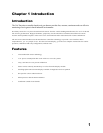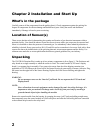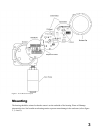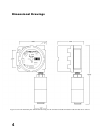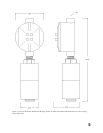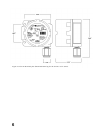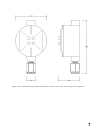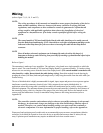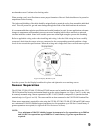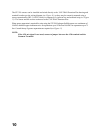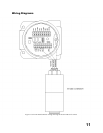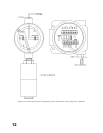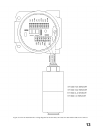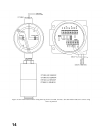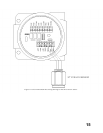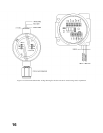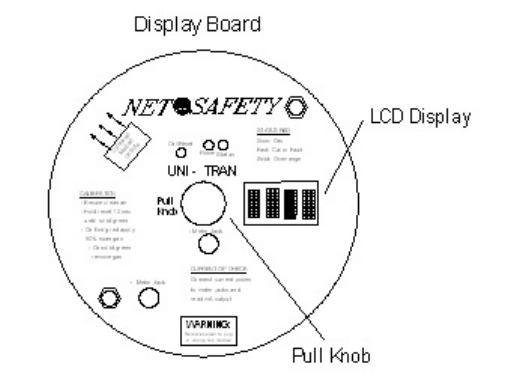
9
Figure 6 Display Board Layout
non-hazardous area. Conform to local wiring codes.
When pouring a seal, use a fibre dam to assure proper formation of the seal. Seals should never be poured at
temperatures below freezing.
The jacket and shielding of the cable should be stripped back to permit the seal to form around the individual
wires. This will prevent air, gas and water leakage through the inside of the shield and into the enclosure.
It is recommended that explosion-proof drains and conduit breathers be used. In some applications, alternate
changes in temperature and barometric pressure can cause 'breathing' which allows moist air to enter and
circulate inside the conduit. Joints in the conduit system are seldom tight enough to prevent this 'breathing'.
Refer to applicable wiring codes when installing and wiring. After the field wiring has been carefully
connected, check that the correct wires are connected to the corresponding terminals and that voltage
levels do not exceed the specifications. When the wiring and voltages have been verified remove power
from the system. Set the Display board back in place and tighten the two retaining screws.
Sensor Separation
The ST1200, ST1300, ST1400, ST1500 and ST1600 sensors can be installed and wired directly to the UNI-
TRAN Premium Plus housing and terminal board as per the wiring diagrams (see Figure 7and 9 ) or they may
be remotely mounted using a sensor separation kit (JB2-2-ASSY) which is composed of a junction box and
terminal strip (see Figure 8 and 10). The sensor and kit are then connected to the UNI-TRAN Premium Plus.
When sensor separation is required for units using the ST1200, ST1300, ST1400, ST1500 and ST1600 sensor
use a minimum of 18AWG shielded copper instrument wire for separations up to 500 feet. Consult factory if
greater separations are required (see Appendix B Wire Resistance in Ohms).
NOTE:
Use a minimum of 18AWG shielded copper instrument wire for separations up to 500 feet
and 16AWG for separations up to 2000 feet. Consult factory if greater separations are
required.



